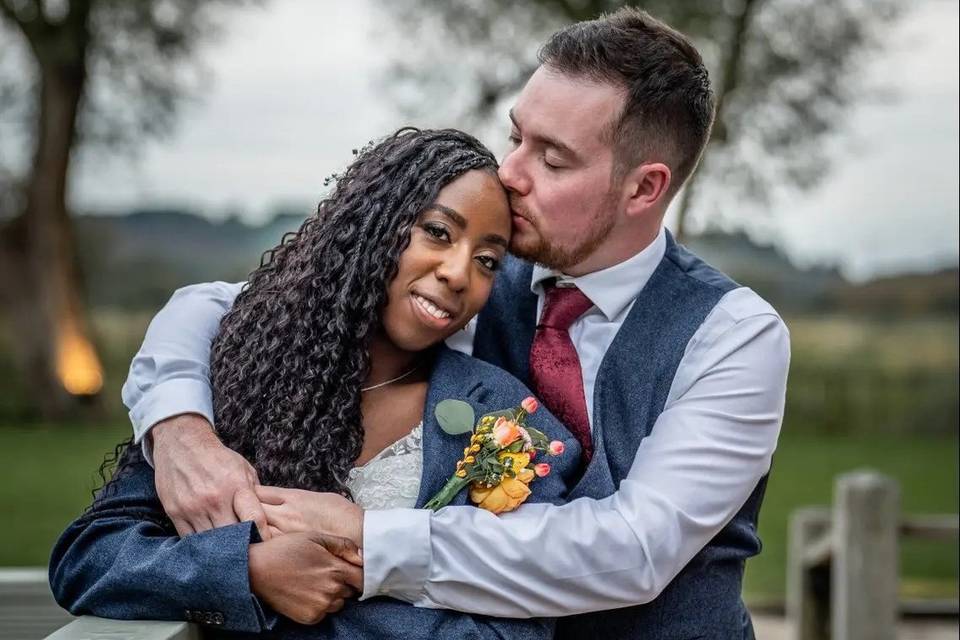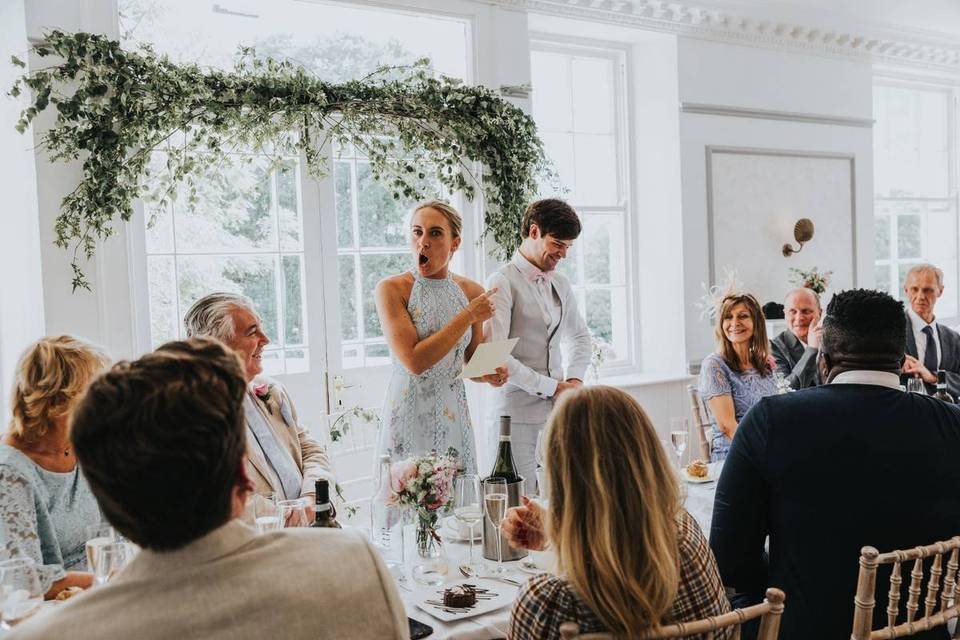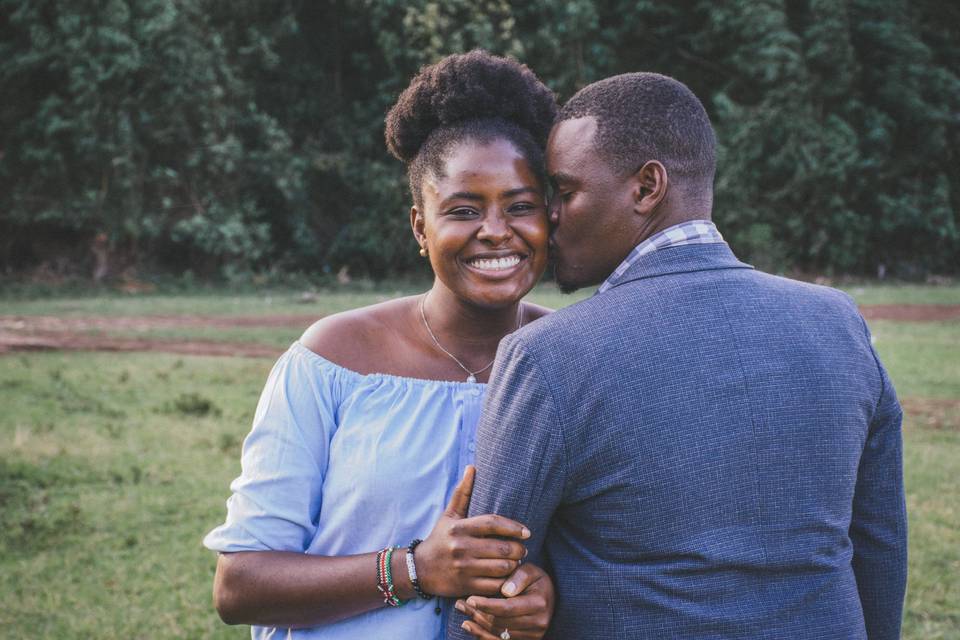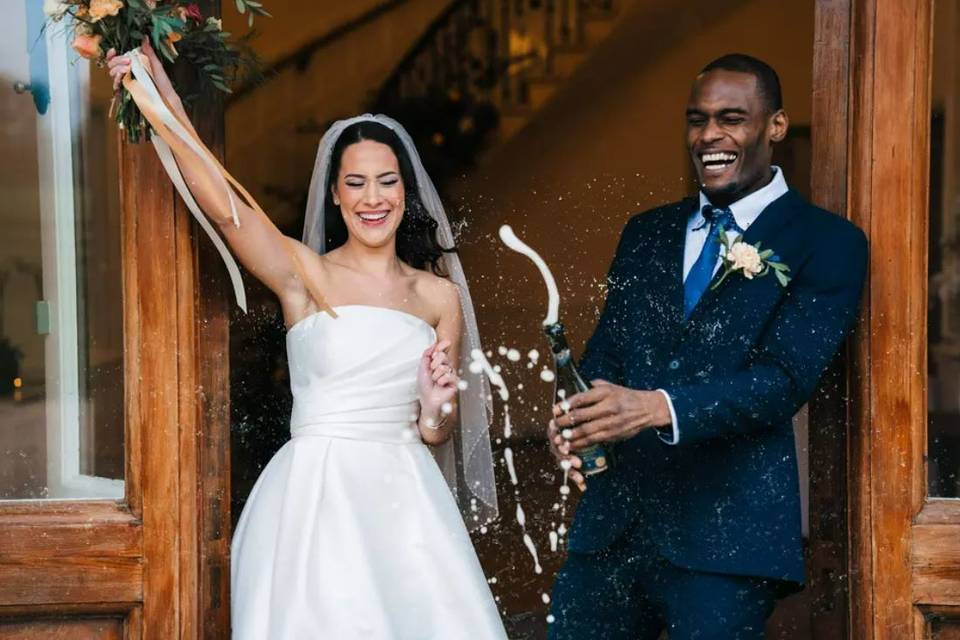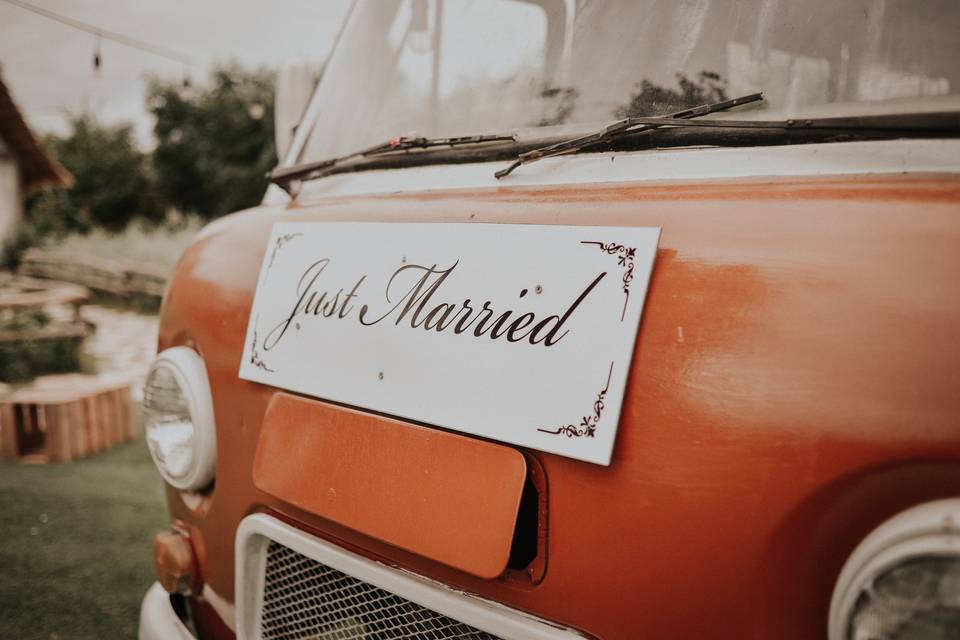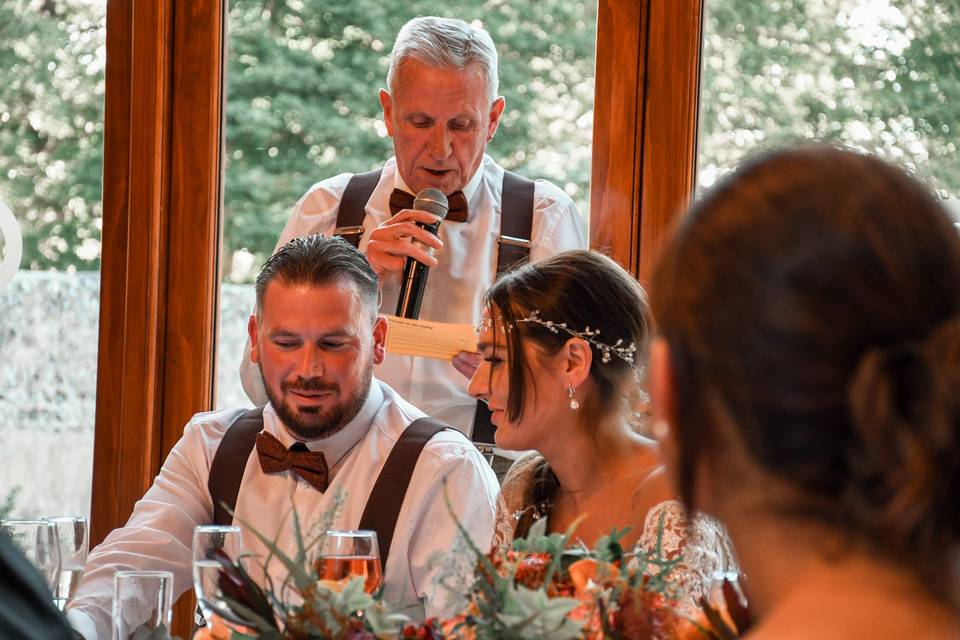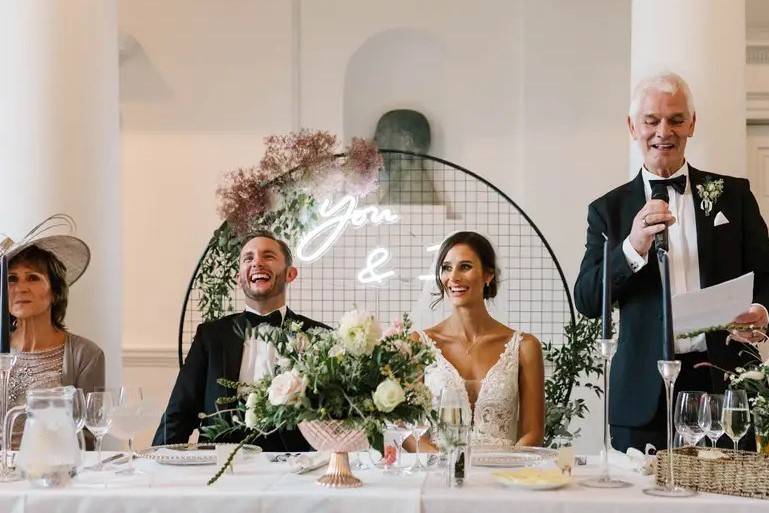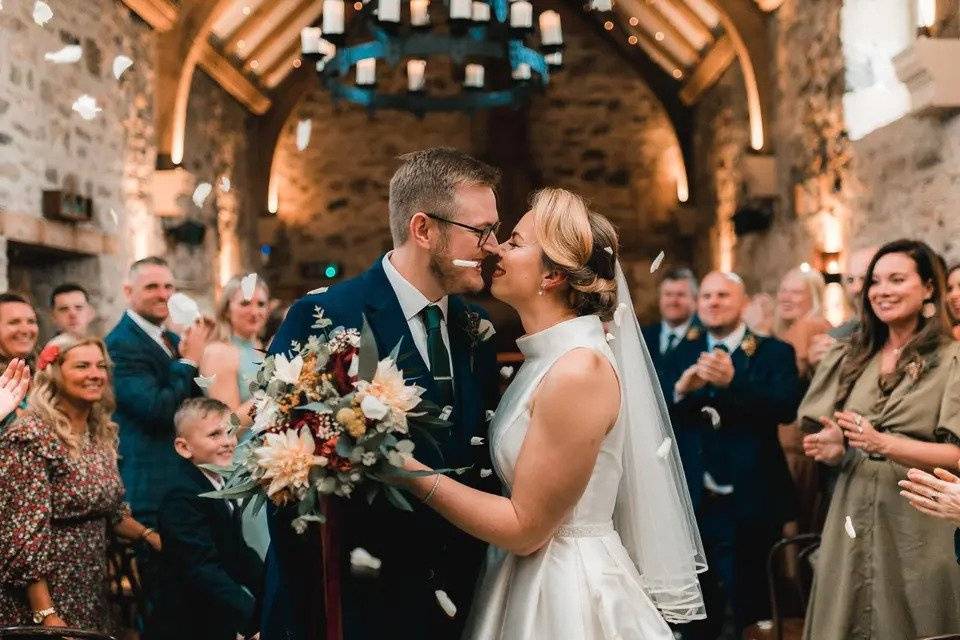Giving Notice of Marriage: How & When to Give Notice
Giving notice can seem like a confusing process, so we've created a step-by-step guide filled with tips on everything you need when giving notice of marriage
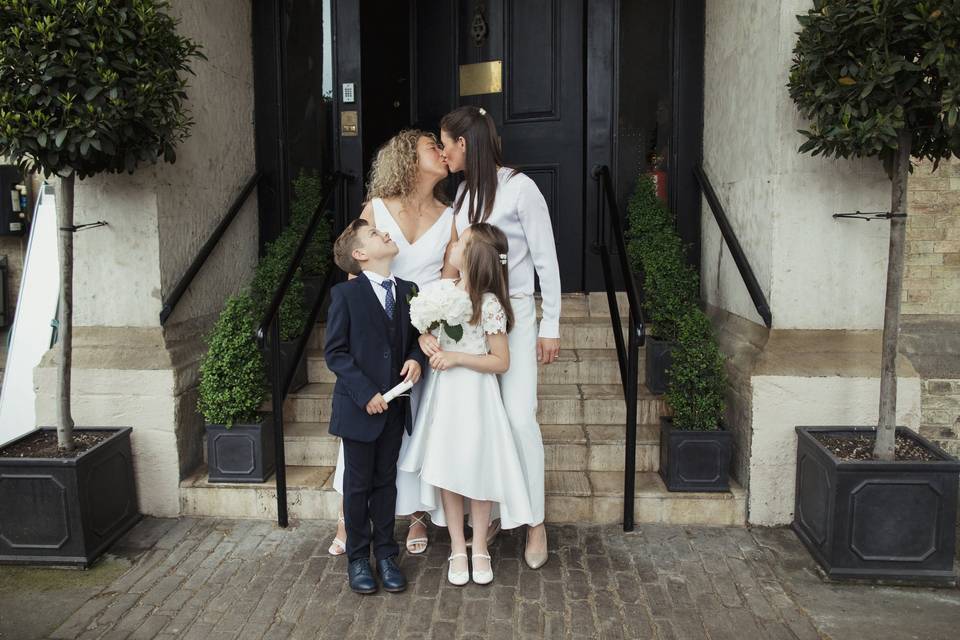

'Giving notice' is a term most couples will have heard before they start planning their wedding, but how many of us actually know what's involved?
Giving notice of marriage means to sign a legal statement at your local register office stating your intention to marry or enter into a civil partnership. You can think of it as registering your intention to marry.
There are time constraints on giving notice and you will need to bring specific documents with you so it's really useful to read up on what's required before you go. We've covered everything you need to know about how to get married here and you'll find a handy checklist of the documents you need to provide.
You cannot legally marry without having given notice – so this is your most important legal step before you say 'I do'!
- What is Giving Notice of Marriage?
- How to Give Notice of Marriage: Step by Step Guide
- Can I Give Notice Online?
- When to Give Notice of Marriage
- How Long Does Notice of Marriage Last?
- Is the Giving Notice Process Different for LGBTQ+ Couples?
What Is Giving Notice of Marriage?
Giving notice is a legal requirement in the marriage process where both parties confirm their identity and that they are free to get married. Being 'free' to marry can mean proving you are old enough to marry, that you are legally divorced or widowed, that you and your partner are not related, or that you have the right visas to marry if you are from outside of the UK.
"The superintendent registrars must be happy that there are no legal impediments to the proposed union," confirms Dawn Saunders, senior registration and ceremonies officer at Southwark Register Office.
What Happens When You Give Notice of Marriage?
Notice of your marriage is displayed at the register office for 15 days so that objections can be raised, if there are any. You are very unlikely to have objections raised, but it comes from a history of making sure that the marriage isn't bigamous or illegal.
Without giving notice before your wedding, you cannot legally marry.
How Do I Give Notice of Marriage?

Before You Give Notice
Giving notice takes some preparation; here's all you need to know before you go.
How Long Does it Take to Give Notice of Marriage?
You must give notice at least 29 days before your ceremony. For example, if you give notice on 1 May, the earliest you can marry or have a civil partnership is 30 May. Don't leave it too late!
"Depending on the couple's immigration status, there is a statutory waiting period of 28 or 70 days after giving notice and the ceremony should not be booked under or within this time period," confirms Dawn. "If you're unsure, it's always worth a call to your local register office just to clarify."
Be aware that you must hold your ceremony within 12 months of giving notice.
Before you can give your wedding notice in England and Wales, it is a legal requirement that you must each have lived within your registration district for at least seven days before giving notice. Don't worry if you live in different districts or are marrying in a different district, you just need to give notice at the registry office local to where you have lived for at least the past week. Giving marriage notice does need to be done in person together, but you don't need to do it in the different districts on the same day.
How Much Does it Cost to Give Notice of Marriage?
There is a statutory fee for giving notice, which is £42 per person (or £57 if either of you are subject to immigration control). This can be paid on the day or in advance. There may be additional fees for processing things such as a foreign divorce.
"It's vital that couples know the exact venue where their ceremony will take place. The notice is only relevant to the place in which they have stated," adds Dawn. If you change your venue, you will need to give fresh notices with the new venue and pay the fees again.
What Documents Do I Need to Give Notice of Marriage?
You'll both need to produce certain documents that prove who you are and your freedom to get married. Make sure you have everything in order before you go.
These documents come under three sections: 1) evidence of name, date of birth and nationality; 2) evidence of ending of previous marriage or civil partnership (due to divorce or death); 3) evidence of place of residence.
You will need to provide original, hard copies of these documents. Photocopies or mobile phone versions are not accepted. You can find out more information on the gov.uk website.
- Proof of your name, date of birth and nationality: a valid passport, travel documents or European ID card. You can also bring your birth certificate alongside photo ID, such as a driving licence.
- Proof of home address: bank statement (no older than one month), utility bill (no older than three months), council tax (the most recent bill, no older than one year)
- Previous marriage documents (if applicable): final divorce documents and translation (if not in English) or death certificate and translation (if not in English)
- Change of name documents: e.g. deed poll, if applicable
- Full name of the venue where the legal marriage will be taking place and the registration district it falls under. If you have booked your venue, take your booking form
- If one of you is a foreign national, there are additional documents to bring.
How to Give Notice of Marriage: Step by Step Guide
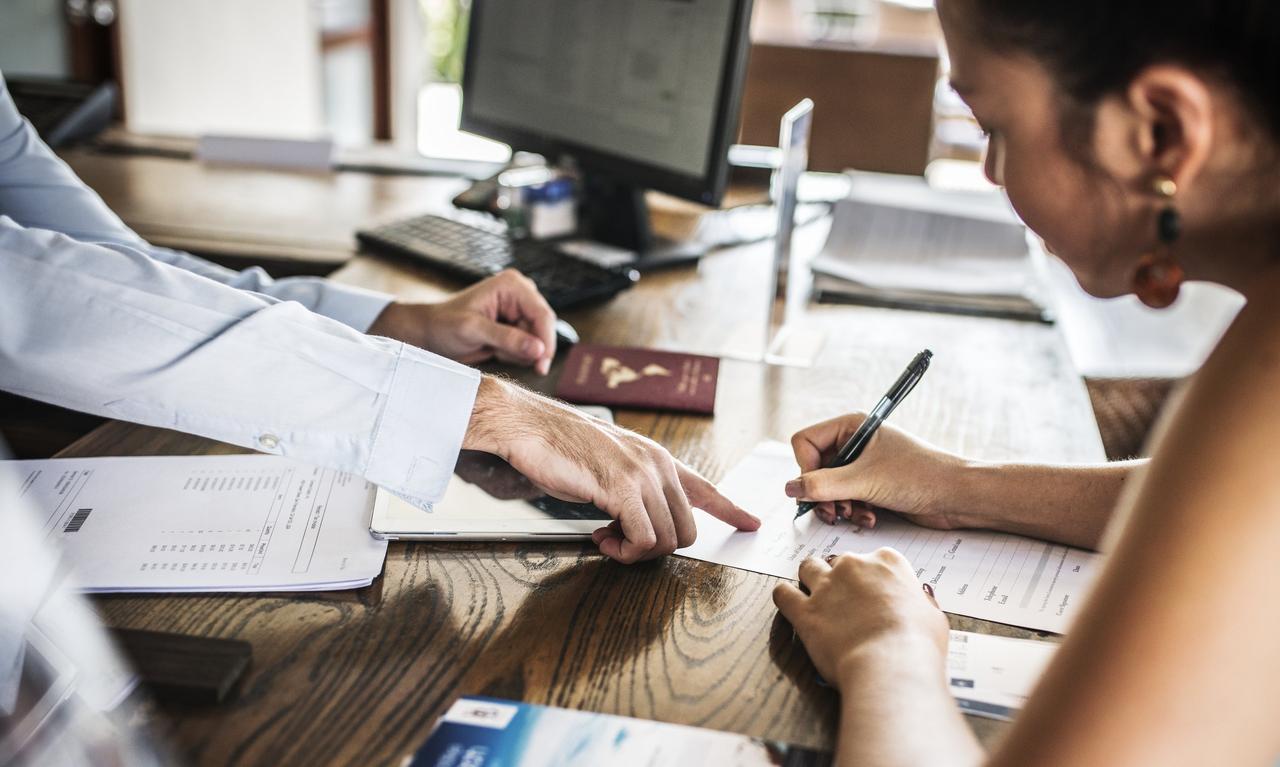
Step 1
Make an appointment at your local register office. It does not matter whether or not this is the district you intend to marry, it just needs to be the one you live in. If you live in different districts, you and your partner will need to give notice at both your local registry offices – but you won't have to do this on the same day.
Be aware that many register offices only offer appointments during working hours, i.e. Monday to Friday, 9am to 5pm, so you'll need to find a time when you can both be off work at the same time to go to the office.
You can call or email your local register office to make the appointment. Some may ask you to email through certain documents before they accept a booking.
Step 2
Gather together all the documentation you need. This may take longer than expected if you have lost vital documents, such as your birth certificate, if you married or divorced abroad and need to get translations made of documentation, or your passport is with the Home Office to obtain a visa, for example.
Your local register office will be able to advise you of what to do if this is the case.
Step 3
Attend your appointment with the superintendent registrar at your register office. They will go through all the documentation you have brought and check that you are legally free to marry and understand what you are agreeing to.
The registrar then issues authority for the marriage and the notice is put on display for public views in the register office. A statutory waiting period of 28 full days after your notice has been issued is observed before a ceremony can take place in England and Wales.
The point of the period between the notice of intention and the wedding ceremony is so that anyone with strong grounds for objecting to the marriage can do so. Strong grounds might be that one partner is not legally divorced from a previous partner, the partners are too closely related, one person is being coerced or entering into the marriage without full understanding, or they are not of an age when they can give consent freely.
Making a false objection to a marriage is a criminal offence.
Step 4
At the end of the notice period, the registrar will confirm you can marry and will advise you if you need to collect any paperwork. In most cases, this will be sent electronically to you and you won't need to attend the register office in person.
You can now host your ceremony! Remember, you can only marry at the venue that is on your notice of marriage and you must marry within 12 months of notice being given.
Can I Give Notice Online?
No, you cannot give notice online. You can book an appointment with the registrar online at most registrar offices, but you both must attend the appointment in person, bringing with you the required documentation.
Giving notice online is something the government began to look into during the Covid lockdowns, but it has not proceeded with this plan and you still need to attend your appointment in person.
It is unknown whether this may change in the future, but for the time being, plan ahead with giving notice in person.
When to Give Notice of Marriage?
You need to give notice at least 29 days in advance of your wedding or civil partnership. This is due to a statutory 28 full days waiting period before your certificate of marriage can be issued.
If you're having a last-minute wedding, you will need to factor this in as it can be tough to get an appointment during busy periods.
The notice of your marriage lasts for 12 months after it has been given so there is no harm in getting the job out the way early.
How Long Does Our Notice of Marriage Last?
Your notice of marriage lasts for 12 months from the date notice has been given. If you and your partner are giving notice on separate days, the certificate of marriage cannot be issued until both of you have given notice, so the 12 months will start on the day the second of you gives notice.
If your wedding does not take place within these 12 months, you will need to give notice and pay the fees again.
Is the Giving Notice Process Different for LGBTQ+ Couples?
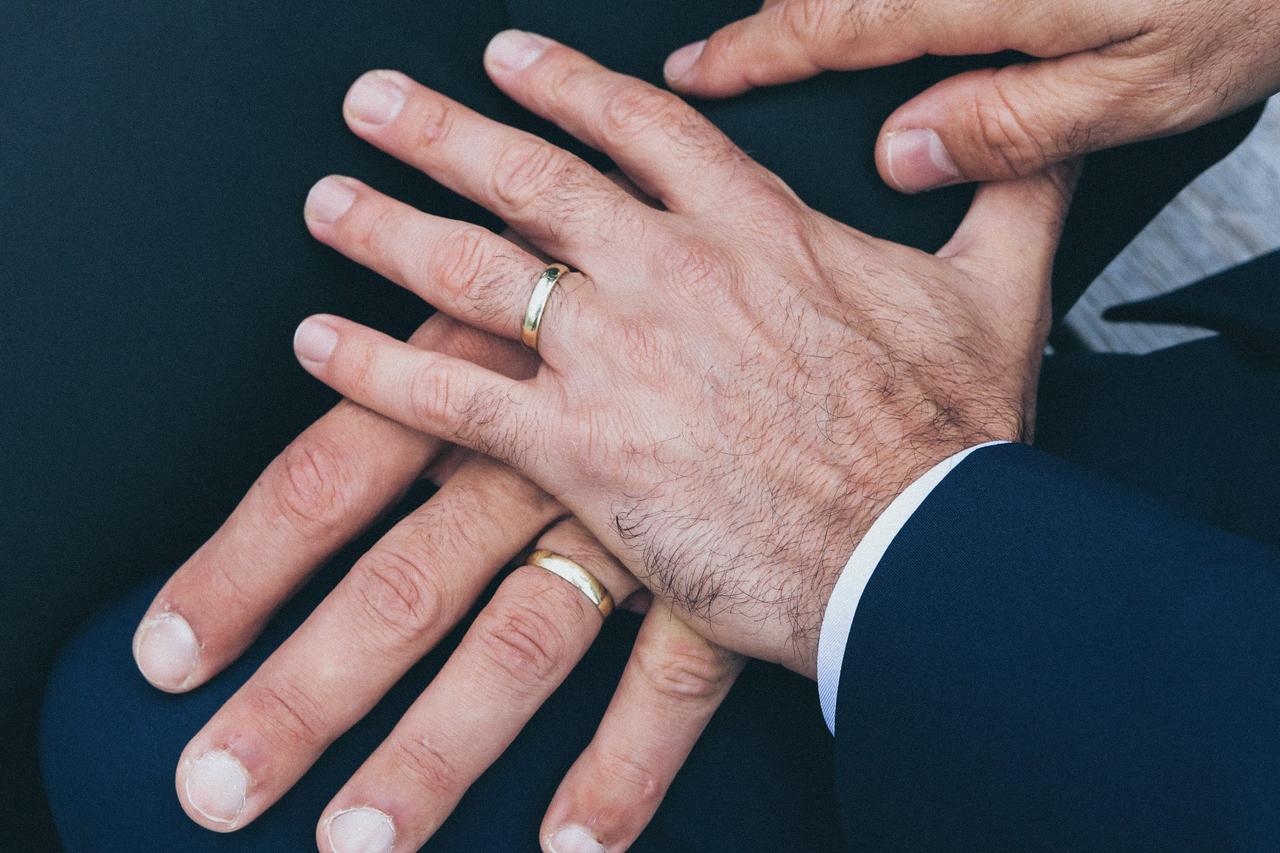
In the UK, same sex coupes can marry in a civil ceremony and will give notice in exactly the same way as opposite sex couples. "Everyone is treated in the same way, regardless," says Dawn.
All couples are free to marry if they are both 18 years or over; are single, widowed or divorced; or if they were in a civil partnership that has been dissolved.
A transgender person who has been granted a full gender recognition certificate can get a new birth certificate that reflects their gender. In England and Wales, they will then be able to marry under their acquired gender and register the marriage under their acquired gender. However, if you don't have a gender recognition certificate, the person will be legally considered the gender on their original birth certificate and will marry under that gender.
If one of you has been issued with a gender recognition certificate and was previously the civil partner of the person they wish to marry, you do not have to wait out the 28 day notice period. You can give notice of marriage and marry on the same day, if you are turning a civil partnership into a marriage.
There are a few things to note:
As it stands, same sex couples can only have a religious ceremony if the religious group has agreed to marry same sex couples. Sadly, at the moment, same sex couples cannot marry in the Church of England or the Church of Wales. You will need to have a civil ceremony instead and give notice through a register office.
If you're having a destination wedding, same sex couples that legally marry abroad under foreign laws will have their marriage recognised in England and Wales. However, if same sex marriage is not legally recognised in the country of your wedding, you will need to marry in a civil ceremony before or after your destination wedding to make it legal.
What Are Banns of Marriage and Are They Different to Giving Notice?
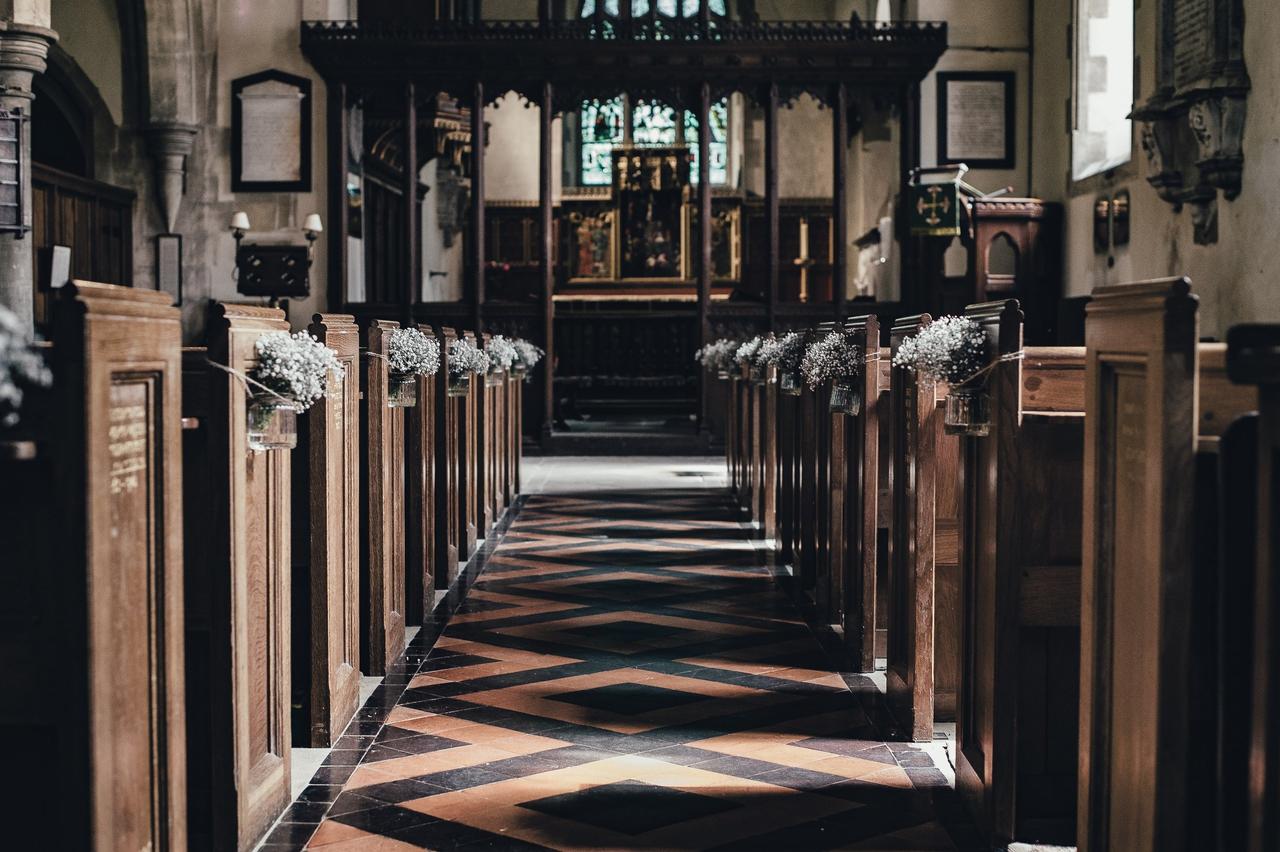
The Church of England and Church of Wales are allowed to register a marriage at the same time as performing the religious ceremony. For this reason, you do not need to give notice of the marriage at a register office in these two churches unless you or your partner are a non-British or EU citizen or you're typically not a member of that church. Then you will need to give notice at the Register Office.
Instead, Banns of Marriage are read out in the Church of England and Church of Wales. Banns are an ancient legal tradition and today are an announcement in your parish church of your forthcoming marriage and a chance for anyone to put forward a reason why the marriage may not lawfully happen.
You must have your banns read out in church for three Sundays in the three months before the wedding. This is usually done over three consecutive Sundays but does not have to be. Banns need to be read in the parish where each of you lives as well as the church you are marrying in, if that is somewhere else.
It's a special occasion in a church and often the couple will want to attend to hear the banns and be prayed for by the congregation.
For all other religious marriages, you will need to give notice at the Register Office. Ministers and priests of other religions can be authorised to register marriages if they have a licence to do so from the superintendent registrar.
For Jewish and Quaker marriages, the authorisation is automatic. For all other religions, if the officiant is not authorised, a registrar must attend the religious ceremony or the partners will need to have a separate civil ceremony to the religious one.
Considering a church wedding? Here's everything you need to know.

